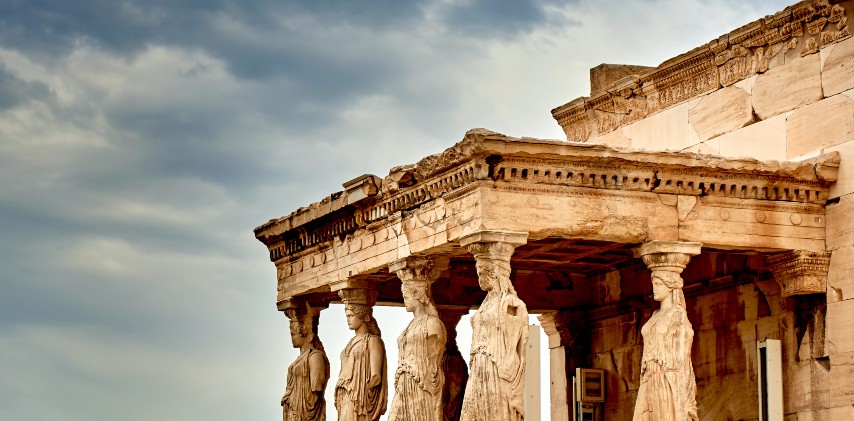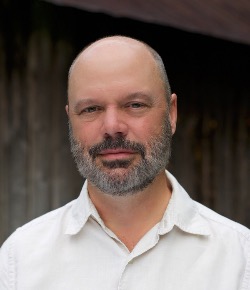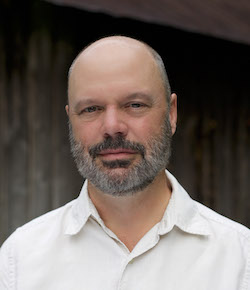
How the Gospel Changes Society
They “turned the world upside down.”
That gripping description — or is it an accusation? — fascinated me when I first read the book of Acts as a teenager.
Christians, namely Paul and Silas and company, arrived in Thessalonica with a reputation. Their faith was not just the backdrop of their lives. It had made waves. I liked that.
I’ve heard many sermons on that phrase since then — it comes from Acts 17:6 — and they usually end with a challenge to put our faith into practice and make some waves of our own. Christians are frequently encouraged to turn our own worlds upside down just as early believers did.
But do we really know what that means? As I’ve studied the biblical context over the years, I’ve realized this story is more than an interesting description of change.
Paul and Silas didn’t just have a reputation for ruffling some obnoxious power-brokers’ feathers. They were hit with accusations because their message really was a threat to society and its structures. They challenged the fundamental status quo.
How?
Christians threatened Thessalonica’s relationship with Rome. Civic patron-client relationships — where Rome was the “patron” and the city was its “client” — came with certain expectations. Above all, the city would keep the peace and clamp down on unrest. It would also give due honor to the emperor, usually with some kind of sacrificial offering that went hand-in-hand with local pagan worship practices.
In return, Rome would offer protection and opportunities for local officials to rise in power.
As a controversial new sect that refused to make sacrifices to the gods in honor of the emperor (or even sacrifices to the emperor), Christians threatened that relationship. As locals saw it, either the gods or the emperor — or even worse, both — might get angry. The city’s welfare was at stake.
Christians upset the balance between Jews and pagans. Jews were a small minority in most Roman cities, but they had deep roots and an understanding with local officials. They would be exempt from the emperor cult and civic pagan obligations as long as they didn’t make waves — a “live and let live” sort of arrangement.
But early Christianity was seen by both Jews and pagans as a Jewish sect that could grow out of proportion and provoke disputes or even riots. If the precarious balance was disrupted, the exemptions could be revoked. A backlash against local Jews would be devastating.
Christians defied the social order. The first believers in Thessalonica were educated Greeks and “some of the leading women” (Acts 17:4). They held some status. Yet some sections of Paul’s letters to the church were addressed to manual laborers, who were generally looked down upon by educated Greeks. Believers came from a variety of economic backgrounds.
The church blurred the lines between social boundaries — always a risky business in ancient societies — by bringing together men, women, Greeks, Jews, the wealthy, and the commoners. Powerful people rarely look kindly on such things.
In short, people who followed Paul’s message in Thessalonica went against the political, social, and spiritual grain. The ignored class lines. They didn’t fit the civic culture. They risked Rome’s disfavor. They put the city’s carefully cultivated privileges on the line.
No wonder Paul and Silas were thrown out of town.
What does that mean for us today? For one thing, it demonstrates that human societies and the kingdom of God often run on different tracks. If we ever find ourselves perfectly aligned with the ways of the world, either the kingdom has already come or we’ve forgotten what it was all about.
It also means that we should not be surprised when our faith, in its true form, challenges social structures. In fact, we should expect that. It has a long track record of doing so in some really meaningful ways.
Christianity in its truest form calls for society — even a “Christian” society — to reorder its values, its institutions, and its alliances and loyalties. It challenges us to be nonconformists whenever necessary.
That means it ought to be really difficult for people to classify followers of Jesus by terms like Democrat, Republican, or any other political or social label. Unfortunately, we nestle into categories other people have made for us. We far too often fit in.
Learn from the early church. In a very real sense, we go against the grain. We defy expectations not just for the sake of being countercultural but for the culture’s own good.
Our mission is to turn an upside-down world right-side up.


